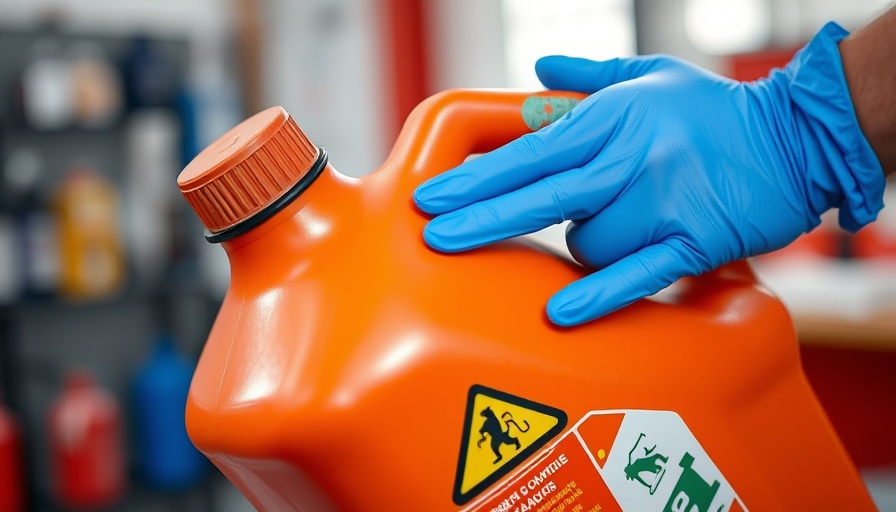
Why Proper Gas Disposal is Essential
Every year, countless homeowners find themselves with outdated or stale gasoline, unsure of how to dispose of it properly. But the risks associated with improper disposal are significant. Gasoline is highly flammable and toxic, posing a danger not just to people, but to the environment as well. As auto enthusiast Alex Black cautions, even a small amount of gasoline can contaminate groundwater, potentially affecting drinking water supplies and local ecosystems. Moreover, not following disposal regulations can lead to severe legal repercussions, including hefty fines. Therefore, educating ourselves on safe disposal methods is critical.
Navigating Local Laws and Regulations
Before you decide to get rid of that gas, it’s vital to understand the legal landscape. In all U.S. states, gasoline is classified as hazardous waste, which means it must be disposed of in accordance with local laws. Regulations can vary significantly from one community to another, making it important to consult with your municipal waste management authority or local Environmental Protection Agency (EPA) office. According to Black, “No drains, no trash, no backyards” is the universal rule. Overlooking this can lead not only to environmental damage but also to expensive fines that can reach several hundred dollars.
Finding Safe Disposal Methods for Gasoline
The process of disposing of gasoline safely should never be taken lightly. Firstly, reach out to local government agencies to identify hazardous waste disposal programs in your area. Many fire stations are equipped to handle gasoline disposal, and they can provide additional information on safe transport.
How to Transport Gasoline to Disposal Sites
When preparing to move gasoline, it’s essential to use an appropriate container. A red gas can specifically designed for this purpose is ideal; never use makeshift containers like milk jugs or plastic bottles. Make sure the container is clearly labeled "USED GASOLINE – DO NOT USE" to prevent any accidents. You should also avoid mixing or diluting gasoline with other fluids. Once you’ve secured the gasoline in the right container, store it in a cool, ventilated area away from heat sources until you can arrive at the disposal site. During transport, ensure your vehicle is well-ventilated and the gas can is sealed properly to prevent leaks.
Where to Dispose of Gasoline Near You
If you're wondering where to go, a simple Google search with your location alongside "hazardous waste disposal" can yield useful local resources. Many urban and suburban areas have established hazardous waste collections regularly or on designated days. You can also consult recycling centers or local mechanics who might offer guidance on safe disposal practices.
Potential Risks of Improperly Disposing of Gasoline
The hazards associated with haphazard gasoline disposal are significant. Beyond the immediate concerns of fire risks and toxic fumes, there are broader environmental implications. Grounds could be contaminated, impacting local wildlife and deteriorating the quality of water sources. Additionally, the emotional and financial strains of geological contamination can weigh heavily on a community's resources and spirit. Hence, responsible disposal is not just an individual concern; it’s a community obligation.
Emphasizing Community Responsibility
As residents of California, a state rich with natural beauty, the responsibility of protecting our environment impacts the community collectively. Users should be aware that a little precaution can save lives and prevent lasting consequences on our ecosystems. Active community engagement in environmentally responsible practices helps protect surroundings for future generations. Raising awareness can encourage neighbors to be proactive about safe disposal methods and spark discussions around eco-friendly practices.
Conclusion: Taking Action to Dispose of Gasoline Safely
The importance of proper gasoline disposal cannot be overstated, particularly in an increasingly environmentally conscious society. By understanding local regulations, utilizing safe transport practices, and acting as community custodians, we not only preserve our surroundings but also protect our health and well-being. Don’t wait any longer; take the initiative to learn about safe gasoline disposal practices and contribute to a safer, cleaner community.
 Add Row
Add Row  Add
Add 




Write A Comment